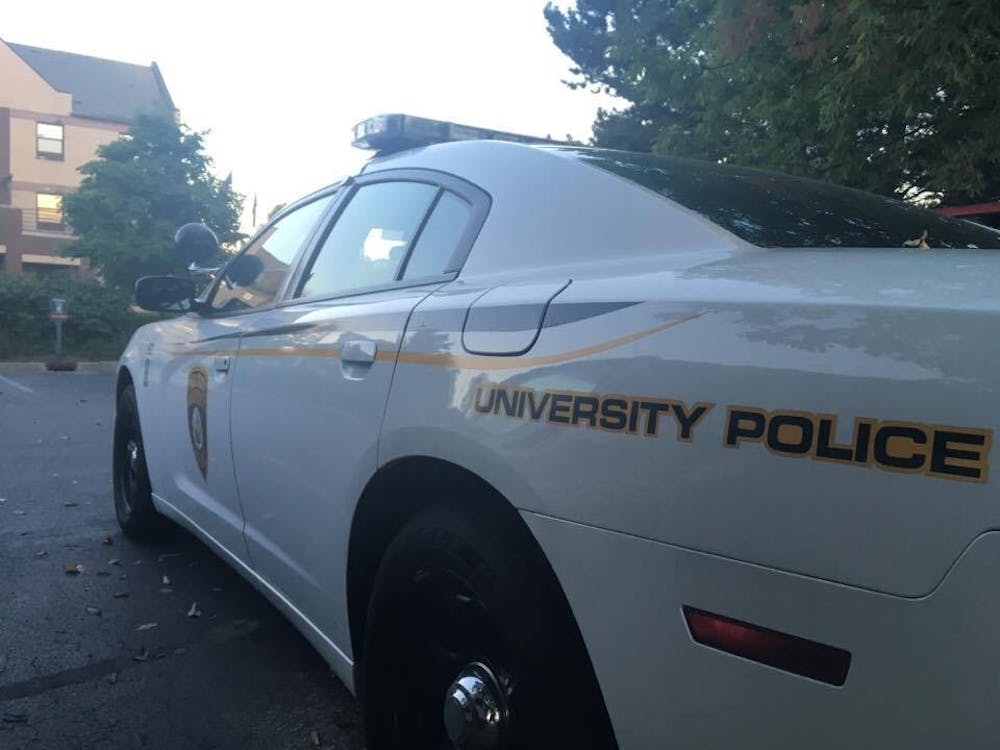Benefits of eCWS:
- Eliminates handwritten tickets and the need to enter the same information into a separate database(s)
- Enhances safety of Hoosier streets and highways by identifying dangerous drivers quickly
- Eliminates duplicate entries by law enforcement, courts, clerks, ISP and BMV
- Increases accuracy of information — data fields pre-populated from license and registration
- Reduces errors because data is not retyped multiple times
- Gives officers more time to patrol by reducing paperwork
- Saves clerical time for clerks, courts and agencies because data is transferred electronically
- Improves timeliness by making data available electronically
The University Police Department has made a change to the way that they will be issuing tickets across campus. The department has now gone digital.
Under this electronic system, known as an Electronic Citation and Warning System, UPD will now be able to electronically record citation information instead of physically writing out tickets. This eliminates the need for redundant data entry, and it will reduce administrative work while increasing the safety of officers and roadways.
“The change was prompted when we began a transition to electronic submission of all paperwork for court purposes,” UPD Capt. Rhonda Clark said. “The electronic filing with the prosecutor’s office allows the prosecutors and court staff to view files in the originally submitted state, and they do not have to spend extra time scanning in paper documents.”
The new system officially went live on Jan. 15 and has been installed in five of the marked UPD cars.
The eCWS initiative is currently being used by Indiana State Police officers statewide and officers in over 300 other law enforcement agencies, according to in.gov. Clark said this system will eventually be required by all police agencies in the state.
When issuing a citation, officers use a scanner to read the driver’s license and vehicle registration. A new citation is then generated in the eCWS system with the driver’s information automatically entered. The officer then records the appropriate offenses and court information along with notes, and prints a paper ticket out for the offender to keep.
While this technology is new to the department, several officers, such as UPD Chief James Duckham, are excited for it.
“Back in the day, when I was a cop during the Flintstone era, we had rocks and stones, but now instead of writing the ticket out, we will be able to do it electronically in the police car,” Duckham said. “So you are able to produce, let’s say that motorist committed multiple violations, instead of writing seven paper tickets, you can do it right on the computer and print it out right there. It is a lot faster.”
Not only is the new system quicker, but it also helps keep citations and department organized.
“We will continue to document citations in our Records Management System for our information,” Clark said. “We will be able to go back to the storage and search for information. Officers submit the citations to a central database at the state level where the original records will be held, and that office provides updates to our local prosecutor. Once there is a disposition in the case, it is documented and returned to the state for retention.”
Even though the process of recording citations has changed, going about paying them has not.
“They [violators] can still pay at the Clerk’s Office, or there will be a court date given if they choose to go to court,” Clark said. “The look of the citation is the biggest difference for the citizens. The e-ticket prints on a full sheet of paper and is typed and clear.”
Clark also said the time frame for violators to pay off their tickets will also be the same. Traffic ticket fines, surcharges and court fees in Indiana vary by violation and county court, according to the Department of Motor Vehicles. People can pay fines online, by phone, mail or in person.
Duckham, who has worked in law enforcement more than 25 years, never thought that he would be filing police reports by something other than a pen and a piece of paper.
“I started in 1986, and if you told me we would be writing police reports electronically in a police car, I would have laughed at you,” Duckham said. “It’s just another tool to be able to do the job more efficiently and effectively.”





